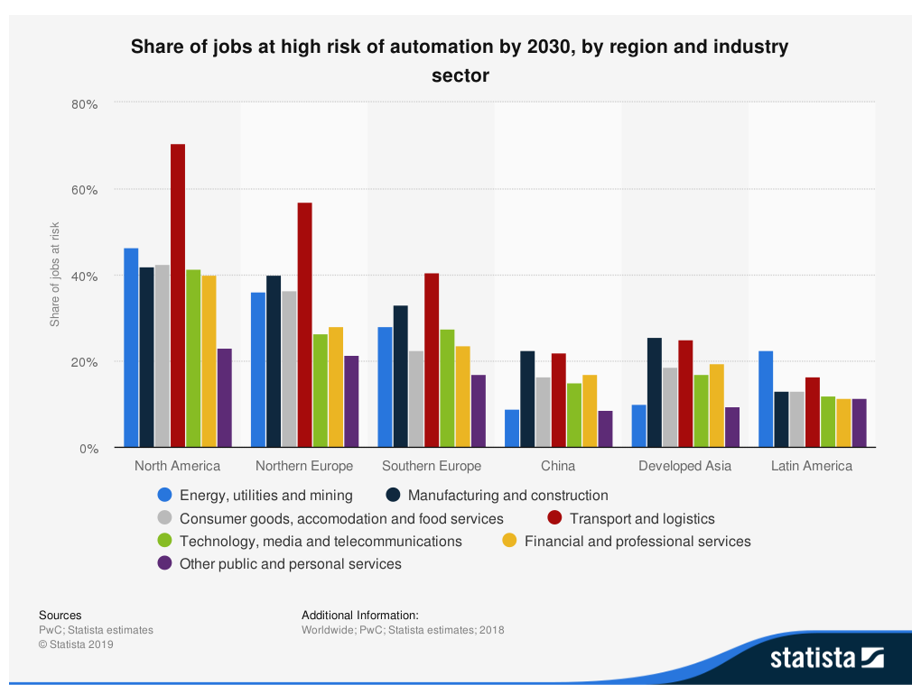How to prepare yourself for the jobs that will be in demand in 10 years?
We have observed how artificial intelligence systems and machines have been displacing individuals from their employment in recent years.
Simply by visiting large retailers like Walmart or Target, to name a few, we can observe how cashiers—those responsible for handling the payment of the purchase—have been replaced by automated checkouts. These systems essentially don't require human interaction from a worker, save for a few limited circumstances.
In fact, figures from the World Economic Forum's annual gathering show that this is taking place everywhere:
• In ten years, automation will change 50% of employment, but only 5% will be eliminated.
• Digital skills will be necessary for 9 out of 10 jobs.
Due to the fact that only the most competent individuals would be able to secure employment or start their own businesses and live the life of their desires, it is clear from these statistics that training for a better quality of life is not a choice.
According to this survey, "Workers will need to pick up new abilities to fulfill these occupations or adjust to changes within their current functions. Business executives are not fully equipping their employees with the essential skills, despite their worries about automation. Only 15% of corporate leaders talk about projects for talent improvement, despite the fact that 45% of them communicate about automation initiatives.

Acting and preparing must be done right now. In order to be able to achieve your goals, training and taking advantage of all the benefits that technology and program offers today offer are not options; they are necessities. People with less education and experience will confront a gap that will be very difficult to close in the next ten years.